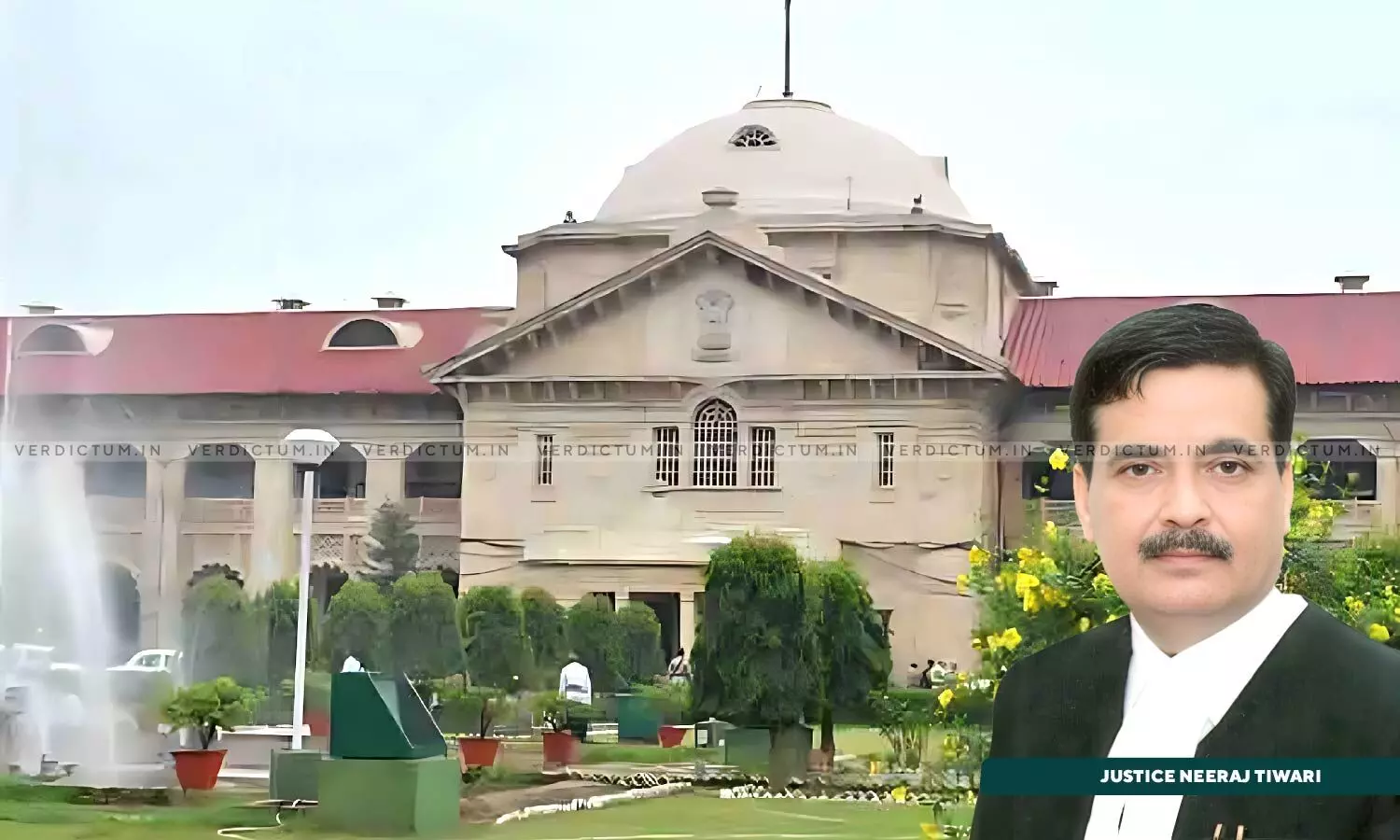
Court Cannot Reject A Discharge Application By Blindly Relying Upon Chargesheet Submitted By The IO: Allahabad HC
 |
|The Allahabad High Court recently, while dealing with an application filed under Section 482 of the CrPC, strongly criticized the approach of a Trial Court for unquestioningly relying on the charge sheet submitted by the Investigating Officer and proceeding to frame charges against the accused.
The Single Judge Bench of Justice Neeraj Tiwari in its order noted, "It is apparently clear that while deciding the discharge application trial Court has not followed the settled ratio of law laid down by the Apex Court as well as this Court. In fact, Court blindly relying upon the charge sheet submitted by I.O. rejected the discharge application and framed charges thereafter. As discussed hereinabove, treating the allegation in FIR as well as statement recorded under Section 161 Cr.P.C. is correct, no case is made out under Sections 386 & 389 IPC, but trial Court functioning like a post office accepted the 20 charge sheet and treating the version true, rejected the discharge application. Thereafter proceeded to frame charges also in the same sections."
Continuing, the Bench stated that the Trial Court had passed the order in a very casual manner, and the order suffered from a lack of application of judicial views established by the Apex Court and various other Courts.
Advocates Shreya Gupta and Shambhavi Sengar appeared for the Applicant while Advocates Rahul Kumar Sharma and Saurabh Agarwal appeared for the Respondents.
The applicants had approached the High Court to challenge the registration of a criminal case under Sections 389, 386, 452, 504, 506, and 507 of the IPC, as well as the rejection of their discharge application by the Trial Court. They argued before the Court that, for deciding the discharge application, it is necessary for the Magistrate to examine the FIR, Case Diary, statements recorded under Section 161 Cr.P.C., and the Charge Sheet. Furthermore, they contended that there was no allegation concerning the delivery of any valuable property, as defined in Section 383 IPC. Therefore, they argued that no case was established under Section 386 IPC.
Applicants also stated that there was no allegation of fear of accusation either in the FIR or in the statements recorded under Section 161 Cr.P.C., and as such, no case was made out under Section 389 IPC.
On the application of Section 383 IPC, the High Court noted that it is apparently clear that for extortion, delivery is a necessary part and in the present case, there is no allegation either in the FIR or in the statement recorded under Section 161 Cr.P.C. about delivery of any property or any other things as referred in Section 383 IPC.
Further, the High Court stated that from the perusal of Section 389 IPC, it is apparently clear that there must have been fear of accusation of offence to commit extortion, but from the perusal of FIR as well as statement recorded under Section 161 Cr.P.C., there is no allegation like this in the present case.
On the aspect of framing of charges by the Trial Court, the Judge referred to the Judgment of the Supreme Court in the case of Sanjay Kumar Rai where it was stated, "Further, it is well settled that the trial court while considering the discharge application is not to act as a mere post office. The Court has to sift through the evidence in order to find out whether there are sufficient grounds to try the suspect. The court has to consider the broad probabilities, total effect of evidence and documents produced and the basic infirmities appearing in the case and so on. [Union of India v. Prafulla Kumar Samal5]. Likewise, the Court has sufficient discretion to order further investigation in appropriate cases, if need be.."
Accordingly, the High Court allowed the application partly by quashing the charges framed under Sections 386 & 389 IPC while allowing the trial to proceed further in the remaining sections i.e., Sections 452, 504, 506 & 507 IPC.
Cause Title: Sanjeev Rawat @ Teetu And Another v. State Of U.P. And Another [APPLICATION U/S 482 No. - 42148 of 2022]